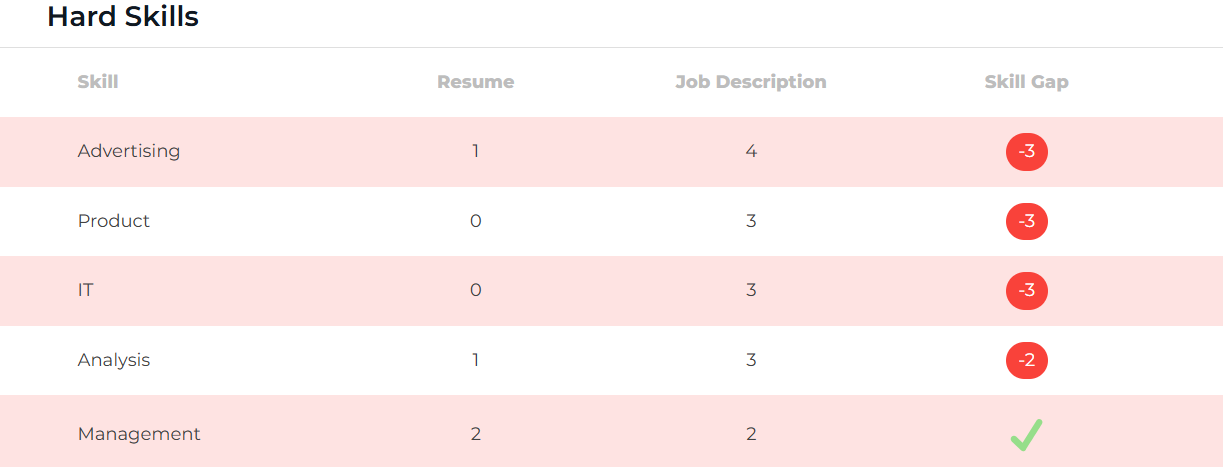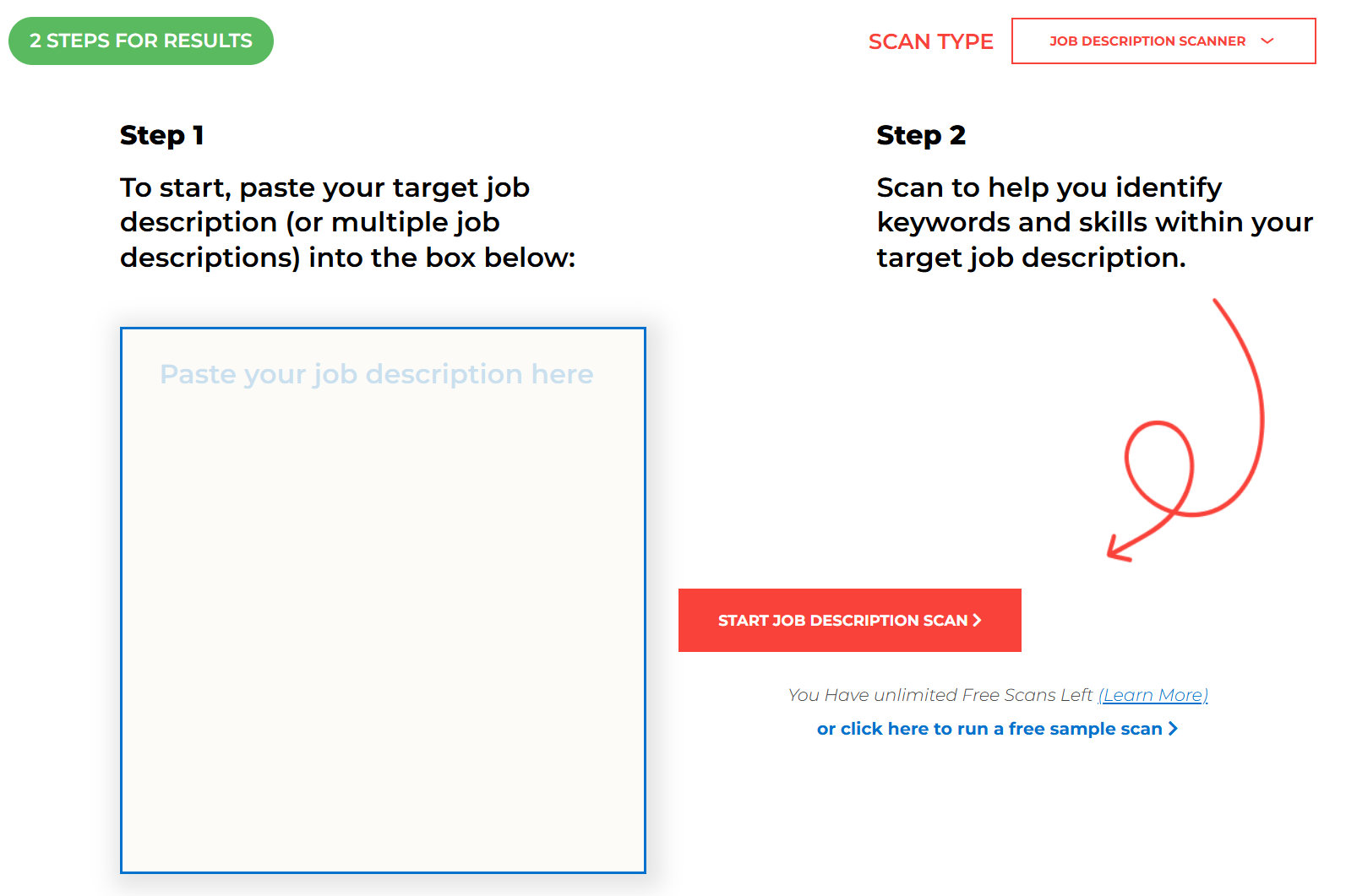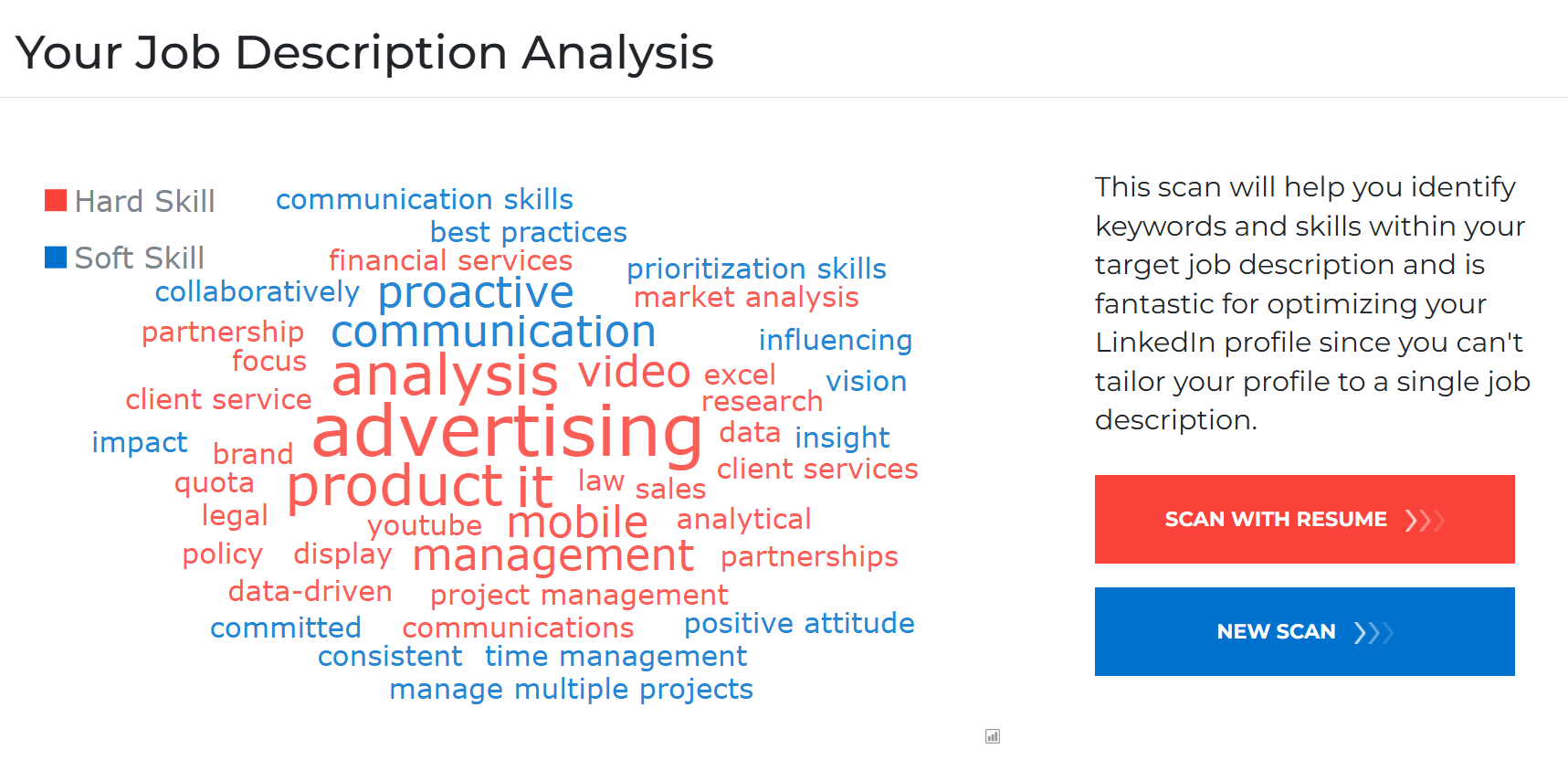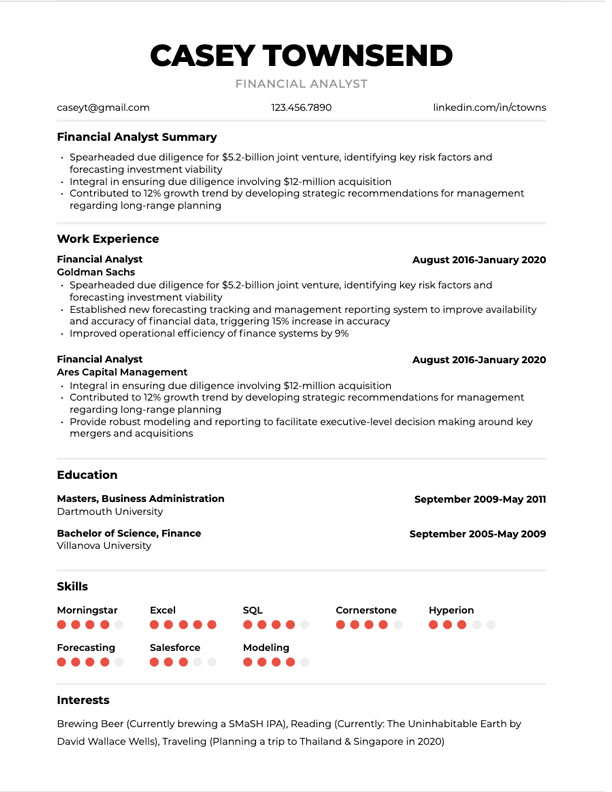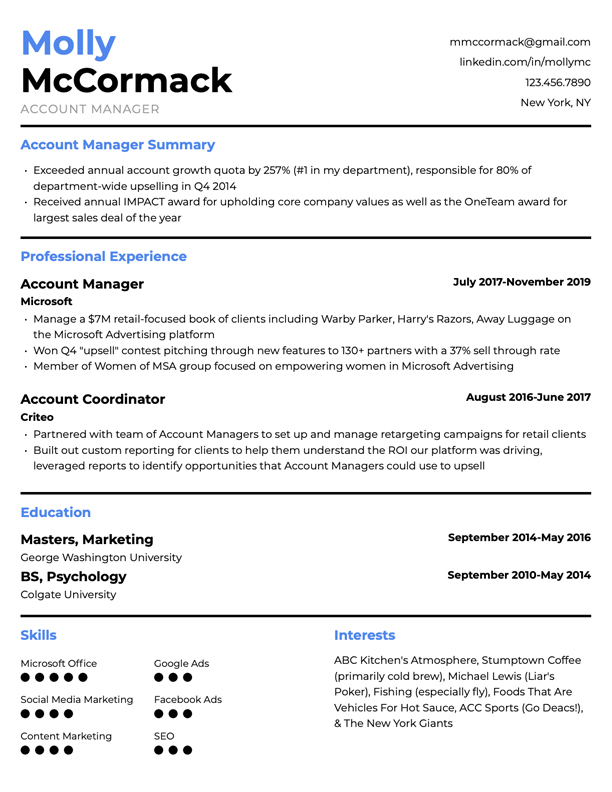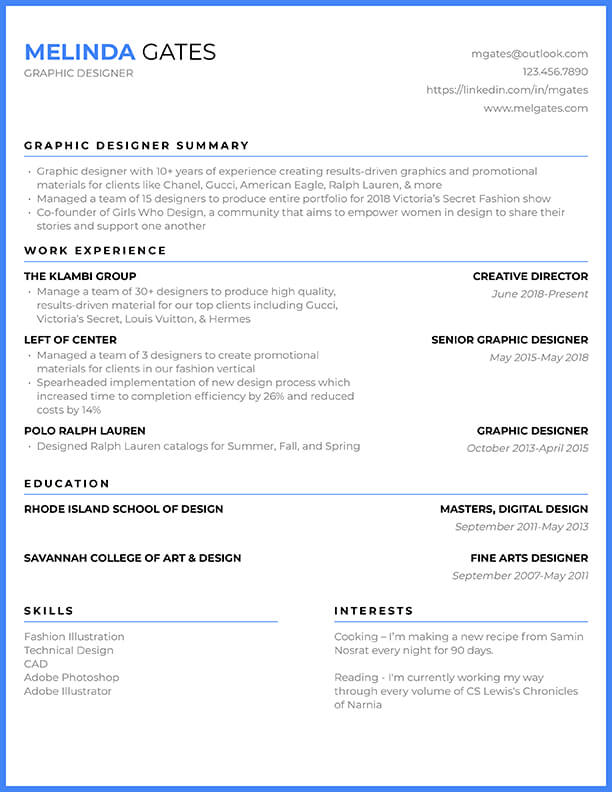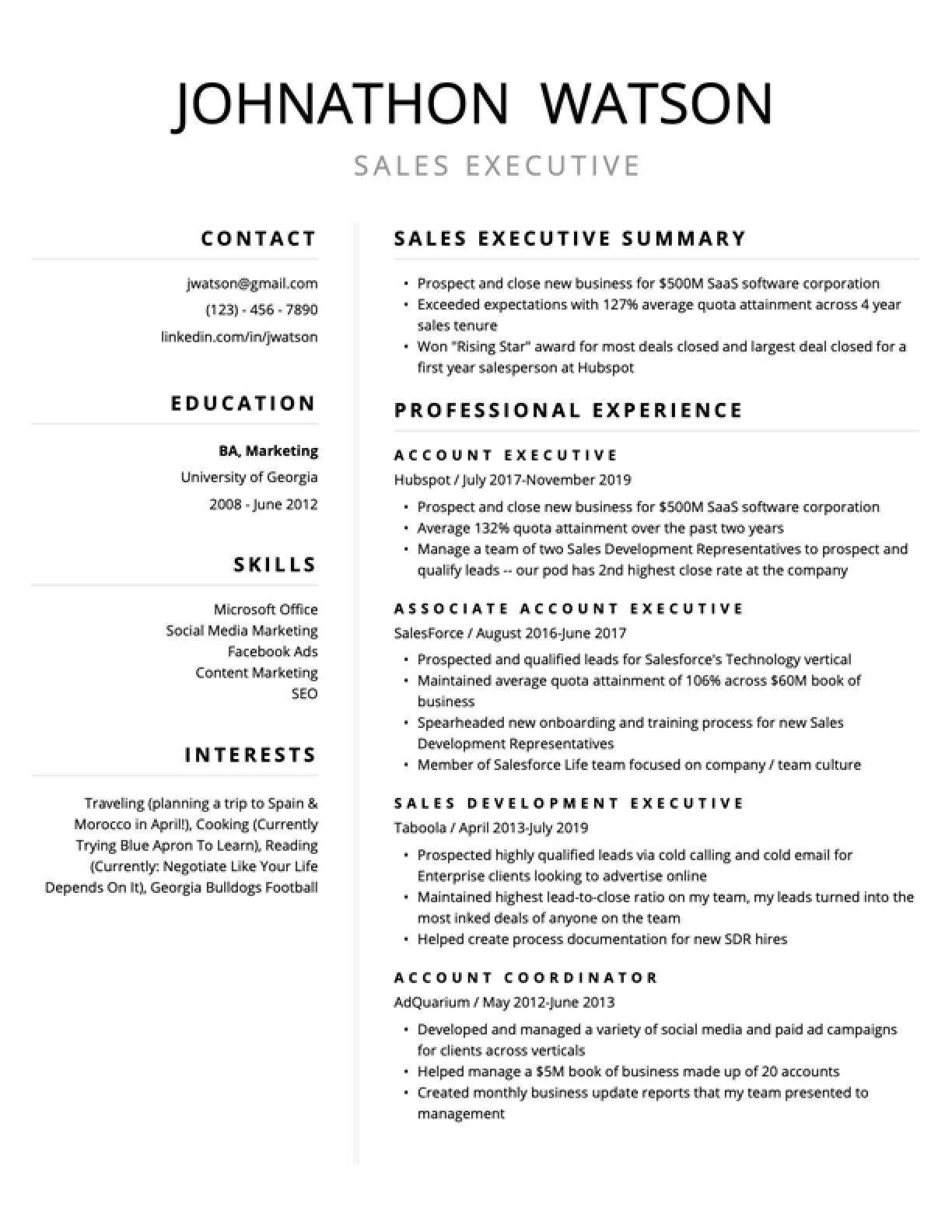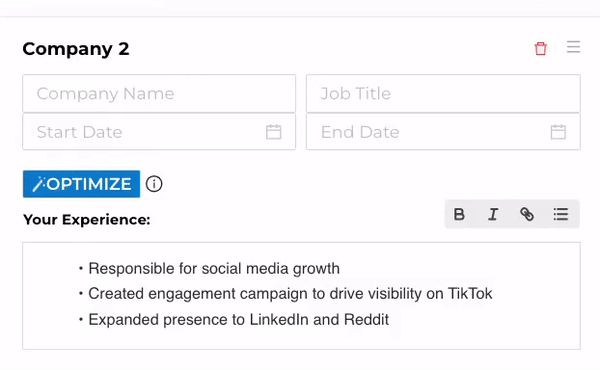If you’ve landed on this article, you probably have tons of questions about working in the technology industry and are wondering if this is a career path worth pursuing.
Good news – you have come to the right place! Whether you're an entry-level professional or well-established in another industry and looking for a career change, this article is for you!
In this article, we’ll be covering the following topics:
- What Is The Tech Industry?
- What Companies Are In The Tech Field?
- What Are The Job Options In Technology?
- What Are The Skills Needed For Tech?
- What Do Tech Jobs Pay?
- Is Technology A Good Career Path? (Our Verdict)
- How To Build A Job-Winning Tech Resume
Let’s dig in!
What Is The Tech Industry?
The tech industry includes companies that develop products like software and hardware or provide services like IT consulting and internet-related services. This ranges from building smartphones and apps to cloud computing and artificial intelligence.
Companies in tech are responsible for creating cutting-edge solutions that drive business efficiency, enhance personal productivity, and solve complex problems.
What Companies Are In The Tech Field?
Many companies operate in the tech industry, from large multinational corporations to innovative startups. Here are some examples from different areas:
- Software: Companies like Microsoft, Adobe, and Salesforce specialize in software solutions for personal and business use.
- Hardware: Apple, Intel, and Samsung lead the way in developing consumer electronics and hardware components.
- Internet Services: Google, Amazon, and Meta provide search engines, cloud storage, and social media platforms that billions of people use worldwide.
- IT Consulting & Services: Firms like IBM, Accenture, and Infosys help businesses implement technology solutions and digital transformation strategies.
These companies work in various tech sectors like software development, data storage, cybersecurity, and artificial intelligence, making tech an ever-expanding and evolving industry.
What Are The Job Options In Technology?
When looking for jobs in the tech industry, you can either work in roles directly tied to tech, or work in supporting roles in areas like sales and marketing.
Let’s explore the most common job options in tech.
Jobs In Software Development
Software development roles involve creating, testing, and maintaining software applications. Common roles in this area include:
- Software Engineer: Develops and maintains software applications and systems, ensuring that they meet user needs and perform efficiently.
- Web Developer: Builds and maintains websites, ensuring they are functional, user-friendly, and visually appealing.
- DevOps Engineer: Bridges the gap between development and operations, focusing on automating processes and improving the reliability of software systems.
Jobs In Data Science
Data science roles focus on extracting insights from data to drive business decisions and innovation. Common roles in this area include:
- Data Scientist: Analyzes and interprets complex data sets to provide actionable insights for businesses.
- Data Engineer: Designs and builds systems that store, process, and analyze large data sets efficiently.
- Machine Learning Engineer: Develops algorithms and models that allow systems to learn from data and make predictions or decisions without human intervention.
Jobs In Cybersecurity
Cybersecurity roles involve protecting an organization's digital assets from cyber threats. Common roles in this area include:
- Cyber Security Analyst: Monitors an organization’s systems for potential security breaches and responds to threats.
- Penetration Tester: Simulates cyberattacks on systems to identify vulnerabilities and suggest improvements.
- Security Engineer: Designs and implements security solutions to protect against cyber threats.
What Are The Skills Needed For Tech?
Learning the skills required for each position is very important. You might have to address some skill gaps or you may already have well-developed skills that you can leverage as you seek a new role.
Here are the required skills for the most common roles in the technology industry:
Entry-Level Roles:
- Coding & Programming Skills: Proficiency in languages like Python, Java, or JavaScript is crucial for most technical roles.
- Problem-Solving: The ability to troubleshoot and solve issues efficiently is essential in many tech jobs.
- Communication: Whether you're explaining technical concepts or working with a team, clear communication is key.
Mid-Senior Manager Roles:
- Leadership: The ability to lead and manage teams across various functions like software development, security, or data analysis.
- Strategic Thinking: Developing long-term strategies for product development and innovation is critical in senior roles.
- Project Management: Ensuring projects are delivered on time and within budget is a must for tech managers.
Mid-Senior Technical Roles:
- Technical Expertise: Deep knowledge of specific technologies or platforms, such as cloud computing, AI, or cybersecurity.
- Data Analysis: Using data to make informed decisions is crucial in roles like data science or product management.
- Innovation: The ability to develop new technology solutions or improve existing ones.
Finding Your Fit With Technology Roles
Want to find out if you are the right fit for a role in the tech industry?
We've got you covered.
Here's a simple, step-by-step guide to find out if you have the skills to take a new position in the technology industry!
- Head over to LinkedIn and search for tech industry roles.
- Copy the job description of the role that sparked your interest.
- Head over to ResyMatch.io (or use our shortcut below)
- Grab a copy of your most updated resume.
- Upload your resume on the left side.
- Paste the job description on the right side.
- Hit “Start Resume Scan.”
Boom! ResyMatch will compare and score your resume versus the job description and identify skill gaps.
ResyMatch will also provide best practices you can use to improve your resume and will ensure that your resume is ATS compliant (ATS is a software that recruiters use to track candidates through their hiring process).
Use our shortcut below to get started:
What Do Tech Jobs Pay?
Now that we’ve covered the most common jobs in the tech industry, you might be wondering how much these roles pay.
To answer this question, let’s head over to one of our favorite tools for salary research: Glassdoor.
Glassdoor is one of the world’s top job and recruiting websites where users can anonymously provide information about their companies – including their current salary. Glassdoor provides an average salary range for various roles based on the information sent by its users.
According to Glassdoor, the base salary for the most common tech industry jobs in 2026 are:
- Software Engineer: $94K – $144K / year base pay (USD)
- Web Developer: $64K – $103K / year base pay (USD)
- DevOps Engineer: $92K – $126K / year base pay (USD)
- Data Scientist: $92K – $142K / year base pay (USD)
- Data Engineer: $89K – $ 123K / year base pay (USD)
- Machine Learning Engineer: $98K – $148K / year base pay (USD)
- Cyber Security Analyst: $83K – 131K / year base pay (USD)
- Penetration Tester: $83K – 149K (USD)
- Security Engineer: $107K – $171K (USD)
Best Paying Jobs In Tech Compared To The Average U.S. Salary In 2026
According to the Social Security Administration, the average salary in the U.S. is $63,795.
This is what the best-paying jobs in the tech industry look like when we put them in perspective:
Machine Learning Engineer, Penetration Tester and Security Engineer are the highest-paying roles in tech, with an earning potential of up to 168% higher than the U.S. average.
Now that we've covered the important basics of the tech industry, we can finally answer the biggest question many job seekers have when considering a new industry:
Is Technology A Good Career Path? (Our Verdict)
The tech industry offers a broad range of opportunities for people interested in innovation, problem-solving, and working with cutting-edge technologies.
Tech roles are diverse and include areas like software development, data science, and cybersecurity, with a strong demand for skilled professionals across the board. Companies like Google, Amazon, and Meta are just a few examples of industry leaders offering opportunities for growth and innovation.
How To Build A Job-Winning Tech Resume
Here's a fact most people don't usually realize: you don't need traditional experience to take on a new role in tech.
You can leverage your unique background, experiences, and skills for nearly any position, as long as you sell it.
Think about your resume as an advertisement for yourself. Like any ad, you want it to be compelling and visually attractive, right?
1. Leveraging The Best Keywords For Your Target Role
Remember ResyMatch.io, that resume and job description scanner tool we mentioned earlier in this article?
We first showed you how you can scan and compare your resume with your target job description to find out how your skills match the role.
However, if you don't have a resume yet, you can still get great insight from this tool by running a job description scan.
Here's how: Head over to ResyMatch.io and, in “Scan Type,” select “Job Description Scanner.” Then, copy the job description for your target role and paste it into the box on the left.
ResyMatch.io will provide a list of hard and soft skills that apply to the role. You can use these skills as keywords when building your resume.
Skim through the list to get ideas for keywords you can leverage on your resume.
For example, let's say you are an innovative and analytical individual. Are there any previous experiences, personal projects, or even academic achievements that you can showcase in your resume to highlight these skills?
If yes, then make sure to include those on your resume and then move on to the next step:
2. Writing Compelling Resume Bullets
This is where you'll start crafting a resume that sells!
You'll want your resume bullets to have just the right amount of hard and soft skills, action words, measurable results, and common words.
This means a compelling tech industry resume bullet for someone applying for a Software Engineer role might look something like this:
Developed a cloud-based application, improving efficiency by 25%.
This bullet focuses on specific hard and soft skills that apply to a Software Engineer, while also showcasing measurable results!
To help you write the perfect resume bullet, we've created ResyBullet.io, a free resume bullet analyzer that helps you write your resume in a way that grabs attention and illustrates value. Simply copy and paste your resume bullet below to begin your analysis:
ResyBullet will analyze and score your resume bullet and give you actionable insights for improvement.
Here's how our tech industry resume bullet scored on ResyBullet:
If you're a visual learner, check out our video that walks you through the step-by-step of writing a crazy-effective resume bullet:
3. Make Your Resume Visually Appealing
The last step is to take all of your content and apply it to a layout that is both easy to read and visually appealing. We recommend using a resume template so you can save the time you would normally spend designing your resume and instead allocate it to other high-value activities in your job search (like interview prep and networking).
You can use ResyBuild.io, a free resume builder, to easily build and customize your resume in no time. Just pick one of the templates below and get started:

Free Job-Winning Resume Templates, Build Yours In No Time.
Choose a resume template below to get started:
Choose from 8 proven templates and easily create, edit, and customize your resume. ResyBuild's AI assistant also helps you craft personalized, job-winning bullets in a single click. Simply add your experience, hit “Optimize”, and watch the magic happen.
Ready To Pursue A Technology Career Path?
Then check out our No Experience, No Problem course and access a proven framework for building the skills and results you need to break into a new industry (even if you have absolutely no relevant experience right now)!



















